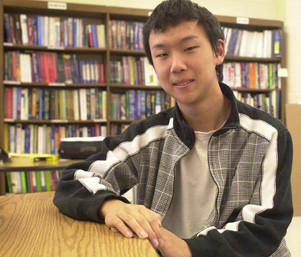Senior joins fight against Alzheimer’s
Research project leads to success at L.I. science fair
Part four in a series about Bellmore-Merrick Central High School District science research students.
Kennedy High School senior Darwin Shen spent last summer staring into a microscope at the New York University School of Medicine, counting hundreds of neurons encased in 20 slides of mouse brain tissue. His objective: Figure out whether immunogens injected into the mice before they died were able to stop the neural loss caused by Alzheimer’s disease.
It was the laborious, tedious and too often unheralded work of science. Fortunately for Shen, however, his work has not gone unnoticed.
His thesis on his study, in which he proved with a high degree of certainty that immunotherapy does indeed help at least slow the ravages of Alzheimer’s disease, was accepted for presentation at the Long Island Science and Humanities Symposium April 1 at SUNY Stony Brook.
Hundreds of high school science researchers from across the Island submitted papers to the symposium, and 90 were accepted, including three from Kennedy High School. The two others were submitted by Kennedy seniors Greg Manis and Joshua Cohen, whose science research projects were recently featured in the Herald. Manis was honored at the Long Island Science and Engineering Fair for a computer science study, and Cohen was named an Intel Science Talent Search semifinalist for his study of atmospheric aerosols produced by mangrove forests in Bimini, in the Bahamas.
Immunogens, Shen said, elicit an immune response; that is, they stimulate the body’s immune system to produce antibodies, which attach themselves to foreign invaders such as bacteria and eradicate them. Scientists are uncertain why immunotherapy might prove effective in treating Alzheimer’s, a progressive form of dementia that slowly leads to total memory loss. The brain shrinks over time, and after many years death follows.






